
Sada: The Hidden Gem of Mayotte
Sada, nestled on the western coast of Mayotte, offers a unique blend of traditional charm and natural beauty. This quaint town is known for its lush landscapes, stunning beaches, and rich cultural heritage. Visitors can immerse themselves in the local way of life, experiencing the warm hospitality of the Mahorais people. Explore the pristine beaches of Sada, where turquoise waters meet soft, white sands. The coastline is perfect for swimming, snorkeling, and diving, with vibrant coral reefs teeming with marine life. The calm and clear waters make it an ideal spot for both beginners and experienced divers. The town of Sada is steeped in history, with its traditional architecture and bustling local markets. Stroll through the streets and you'll discover a variety of handcrafted goods, from woven textiles to intricate jewelry. The local cuisine is a must-try, offering a delicious mix of African, French, and Indian flavors. For nature lovers, a visit to the nearby Mount Choungui offers breathtaking views of the island and the surrounding ocean. The hike up the mountain is challenging but rewarding, with lush vegetation and diverse wildlife along the way. Don't miss the chance to explore the mangroves and take a boat trip to spot dolphins and sea turtles in their natural habitat.
Local tips in Sada
- Visit local markets early in the morning to experience the freshest produce and traditional crafts.
- Bring reef-safe sunscreen to protect the marine life while enjoying water activities.
- Try the local dish, M'Tsolola, a flavorful stew made with fish, green bananas, and coconut milk.
- Hire a local guide for the hike up Mount Choungui to learn about the flora and fauna along the way.
- Respect local customs and dress modestly, especially when visiting villages and religious sites.
Sada: The Hidden Gem of Mayotte
Sada, nestled on the western coast of Mayotte, offers a unique blend of traditional charm and natural beauty. This quaint town is known for its lush landscapes, stunning beaches, and rich cultural heritage. Visitors can immerse themselves in the local way of life, experiencing the warm hospitality of the Mahorais people. Explore the pristine beaches of Sada, where turquoise waters meet soft, white sands. The coastline is perfect for swimming, snorkeling, and diving, with vibrant coral reefs teeming with marine life. The calm and clear waters make it an ideal spot for both beginners and experienced divers. The town of Sada is steeped in history, with its traditional architecture and bustling local markets. Stroll through the streets and you'll discover a variety of handcrafted goods, from woven textiles to intricate jewelry. The local cuisine is a must-try, offering a delicious mix of African, French, and Indian flavors. For nature lovers, a visit to the nearby Mount Choungui offers breathtaking views of the island and the surrounding ocean. The hike up the mountain is challenging but rewarding, with lush vegetation and diverse wildlife along the way. Don't miss the chance to explore the mangroves and take a boat trip to spot dolphins and sea turtles in their natural habitat.
When is the best time to go to Sada?
Iconic landmarks you can’t miss
Beach N'Gouja
Experience the breathtaking beauty of Beach N'Gouja in Mayotte, a tropical paradise perfect for relaxation, swimming, and exploration of nature's wonders.
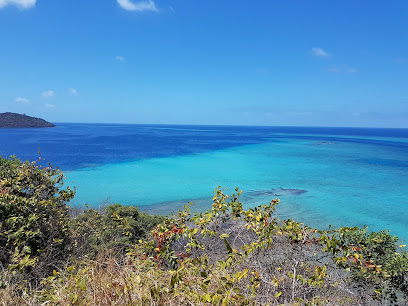
Le Jardin Maore
Experience the serene beauty of Mayotte at Le Jardin Maore, your perfect retreat for relaxation, diving, and exquisite local cuisine.
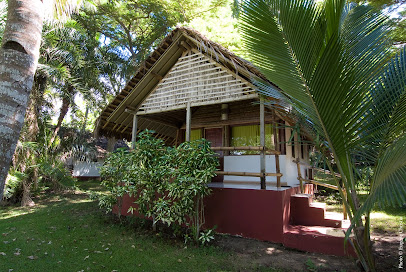
Pointe Mahabou
Discover the stunning hiking trails and breathtaking vistas of Pointe Mahabou, a must-visit destination for nature lovers in Mayotte.
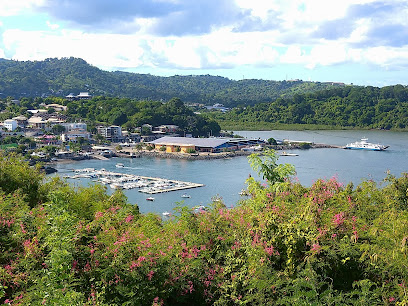
Plage De Tanaraki
Plage De Tanaraki: A hidden beach paradise in Mayotte with stunning sands, crystal-clear waters, and breathtaking sunsets, perfect for relaxation.
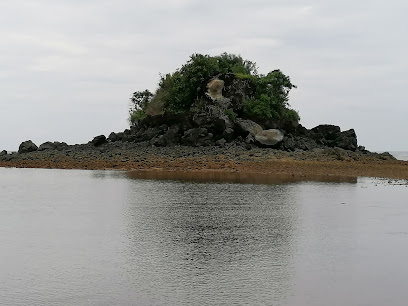
Le Chissioua
Discover the culinary delights of Le Chissioua in Mayotte, where local flavors meet stunning coastal views in an inviting atmosphere.
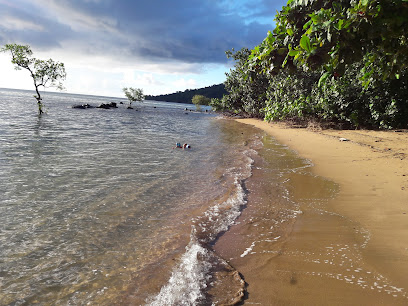
Plage du Faré
Experience the tranquil beauty of Plage du Faré in Mayotte, where golden sands meet turquoise waters for the perfect beach getaway.
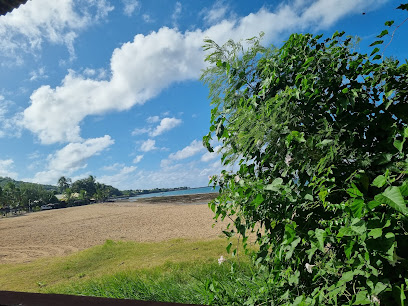
Cascade de Soulou
Experience the breathtaking beauty of Cascade de Soulou, a hidden waterfall in Mayotte, perfect for adventure seekers and nature lovers alike.
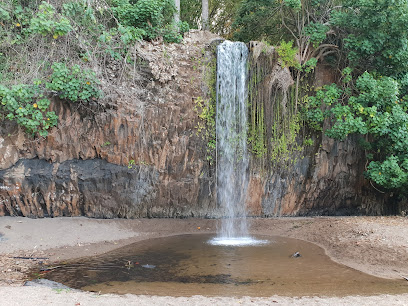
Mont Choungui
Discover the breathtaking views and diverse wildlife at Mont Choungui, Mayotte's stunning protected area perfect for hiking and adventure.
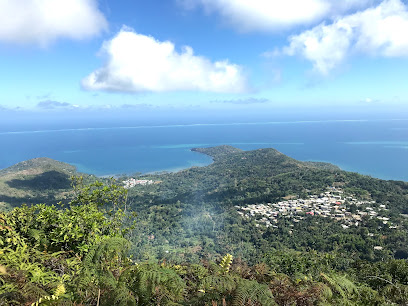
Les Baobabs
Experience the serene beauty and cultural richness of Mayotte at Les Baobabs, your perfect inn for relaxation and adventure.

Plage de Sakouli
Experience the pristine beauty and tranquil atmosphere of Plage de Sakouli, a tropical paradise in Mayotte perfect for relaxation and adventure.
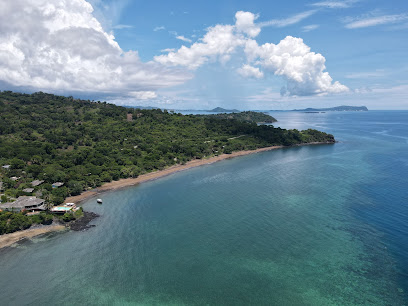
Sada Photo Papeterie
Explore the charming Sada Photo Papeterie in Mayotte, where creativity meets local artistry in a delightful stationery store.
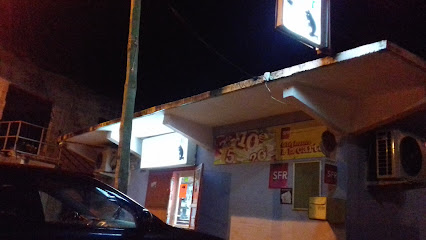
Mosquée de Tsingoni
Discover the serene beauty of Mosquée de Tsingoni, a cultural gem in Mayotte, where tradition and tranquility intertwine.
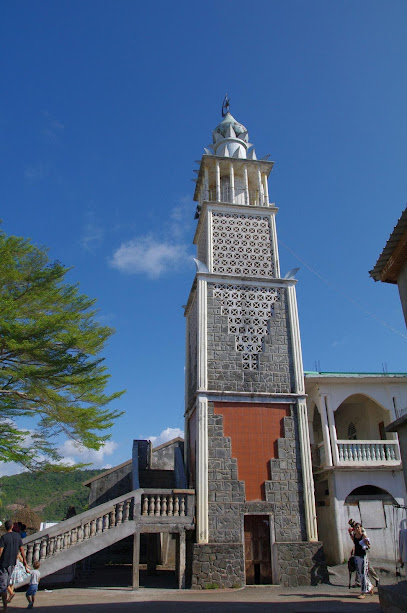
Maison du Gouverneur
Explore the historic Maison du Gouverneur in Dzaoudzi, Mayotte, a captivating tourist attraction reflecting the island's colonial past and stunning scenery.
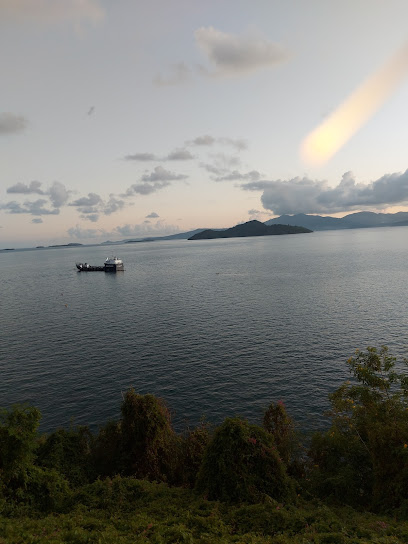
Plateau polyvalent sportif
Explore the energetic Plateau Polyvalent Sportif in Mayotte, a sports complex where culture and community meet in vibrant athletic activities.
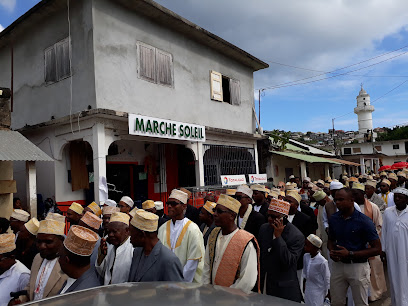
Plage de Zidakani
Experience the untouched beauty of Plage de Zidakani, a tranquil beach paradise in Tsingoni, Mayotte, perfect for relaxation and adventure.
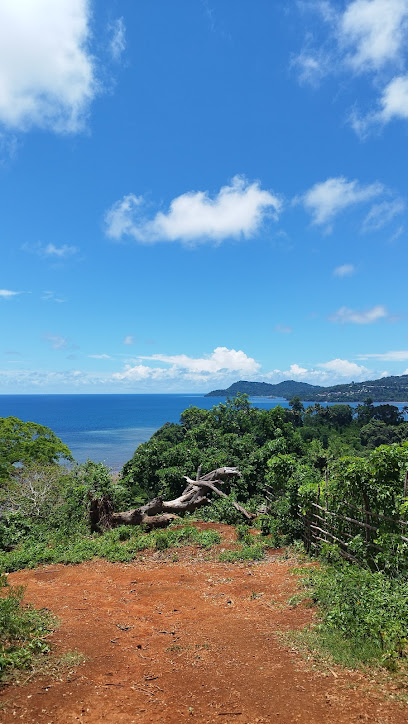
Unmissable attractions to see
Seablue
Explore the stunning marine landscapes of Mayotte with Seablue, where unforgettable boat tours and vibrant ecosystems await every traveler.
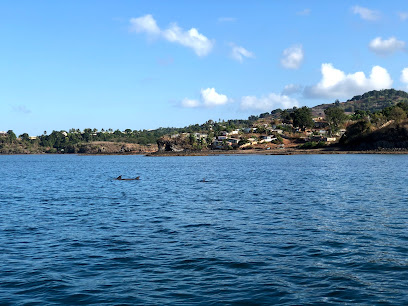
N’Gouja
Discover the untouched beauty of N’Gouja, Mayotte's serene beach paradise, where adventure meets relaxation amidst stunning natural landscapes.
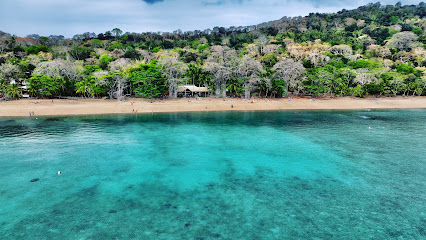
Dziani Dzaha
Explore Dziani Dzaha, a serene lake in Mayotte, surrounded by lush nature, perfect for relaxation, adventure, and unforgettable experiences.
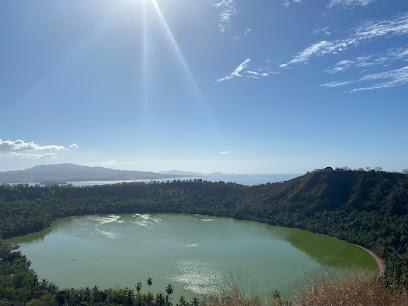
Lagon Aventure
Embark on an unforgettable journey with Lagon Aventure, where adventure meets the stunning beauty of the Indian Ocean.
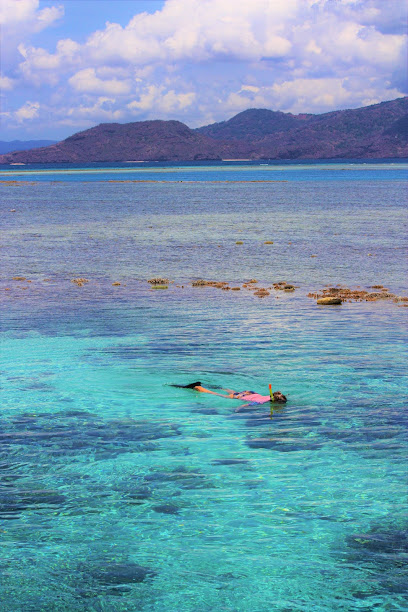
AROmaoré
Experience the rich agricultural heritage of Mayotte at AROmaoré, where sustainable farming meets cultural immersion in a stunning natural setting.
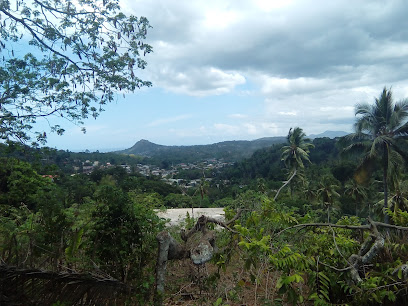
Maison du Gouverneur
Explore the captivating history and stunning views at Maison du Gouverneur, a must-visit tourist attraction in Dzaoudzi, Mayotte.
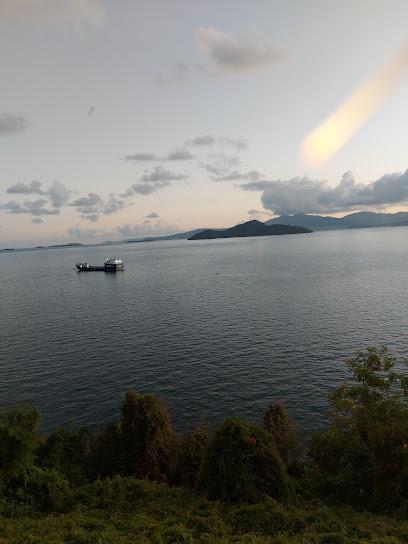
Baie de Bouéni
Experience the serene beauty of Baie de Bouéni in Mayotte, where turquoise waters and lush landscapes await your exploration and relaxation.

Essential places to dine
Le Moana
Experience the authentic flavors of Mayotte at Le Moana – where every dish tells a story.
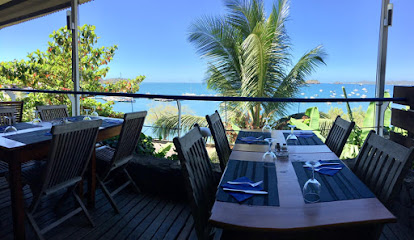
Nasso na Bisso
Experience authentic Mayotte cuisine at Nasso na Bisso in Sada – where every meal tells a story.
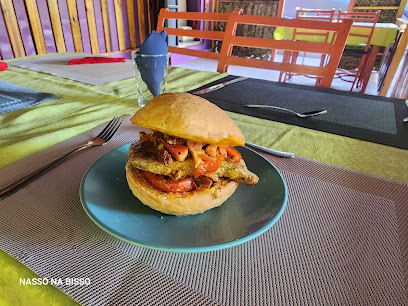
Le Mahazatra
Discover Le Mahazatra: A Grill Paradise in Mamoudzou Offering Authentic Flavors and Vibrant Atmosphere for Food Lovers.
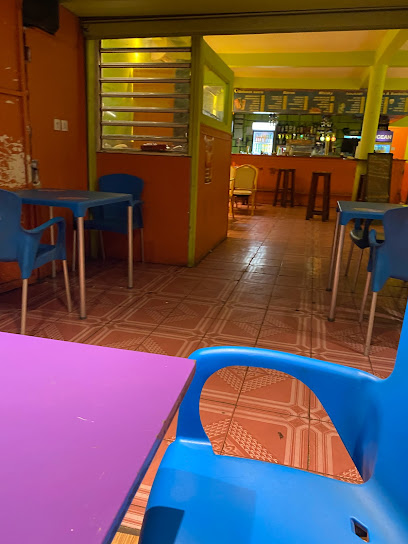
Le Chissioua
Experience authentic Mayotte cuisine at Le Chissioua—where every meal is a celebration of local flavors amidst stunning coastal views.
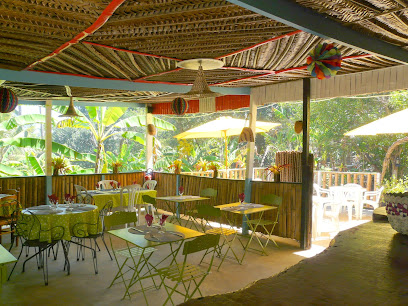
Restaurant-Bellevue
Experience authentic Mayotte cuisine with stunning views at Restaurant-Bellevue – a culinary haven in Sada.
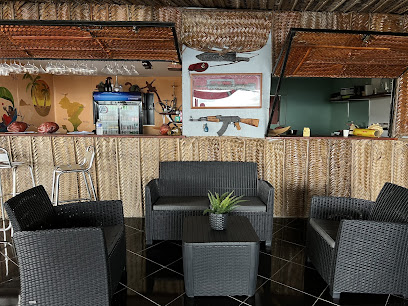
Bomba Snack
Experience authentic flavors at Bomba Snack in Sada, Mayotte—your go-to destination for local cuisine amidst stunning island scenery.

Gaboussi Café
Discover the flavors of Mayotte at Gaboussi Café - where local cuisine meets inviting atmosphere in Ouangani.
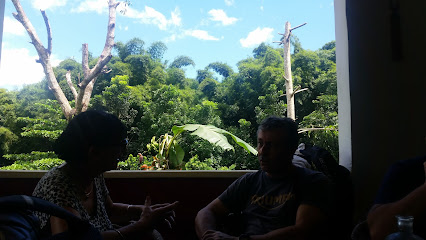
Le M'haju
Discover authentic Mayotte cuisine at Le M'haju - where every dish tells a story in a vibrant setting.
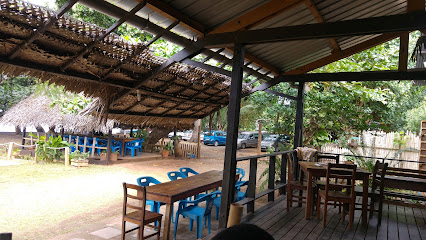
SNACK TSIKA
Experience authentic Mayotte cuisine at Snack Tsika in Chirongui – a culinary haven blending tradition with local flavors.
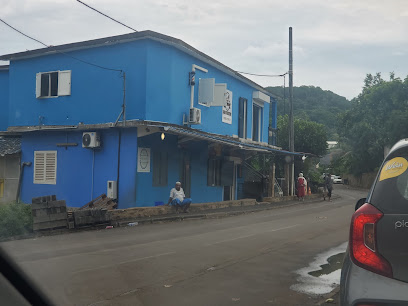
LE WESTERN SNACK
Discover Le Western Snack in Sada: A delightful dining experience offering authentic local cuisine amidst the charm of Mayotte.

Le Periph’
Discover authentic Mahoran cuisine at Le Periph’, where fresh ingredients meet island flavors for an unforgettable dining experience.

Snack Porte Rouge
Experience authentic Mayotte cuisine at Snack Porte Rouge in Sada - where flavors meet culture in a warm and inviting atmosphere.
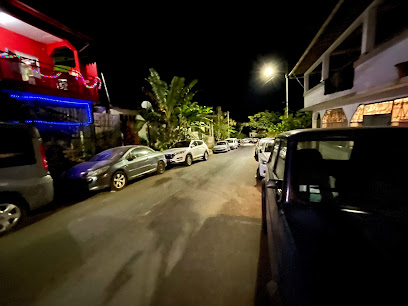
Ali Ba Pizzeria
Experience authentic pizza and local flavors at Ali Ba Pizzeria in Sada, Mayotte - a must-visit dining destination for every traveler.
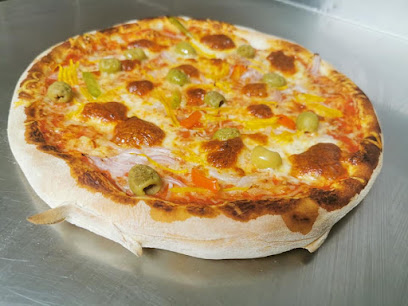
PIZZA BONICI
Discover mouthwatering pizzas at Pizza Bonici in Sada, Mayotte – where local flavors meet Italian tradition for an unforgettable dining experience.
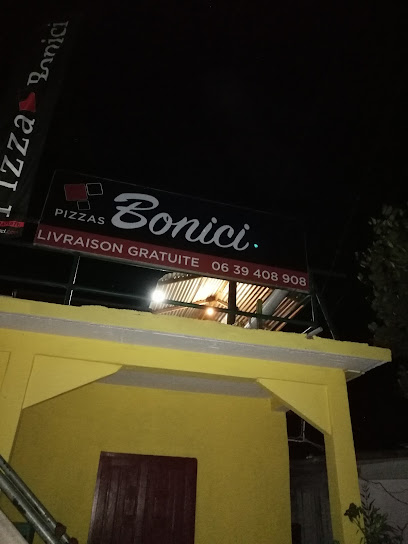
Crêperie Chez Papi-coco sada
Discover the authentic taste of Mayotte at Crêperie Chez Papi-coco, where every crêpe tells a story.
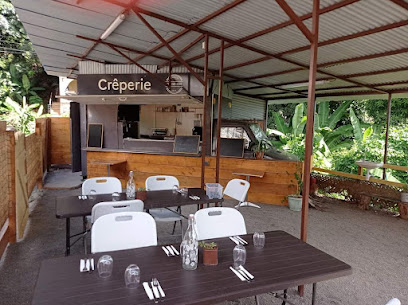
Markets, malls and hidden boutiques
Douka Bé Sada
Explore Douka Bé Sada, a lively supermarket in Sada, Mayotte, where local flavors and vibrant community life come together for an authentic shopping experience.
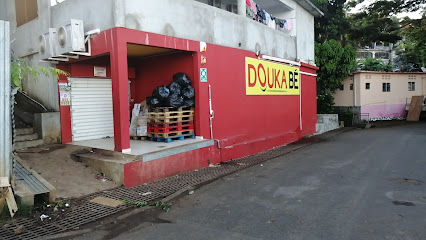
Sada Photo Papeterie
Explore Sada Photo Papeterie for unique stationery and creative supplies in Mayotte, perfect for travelers seeking inspiration and keepsakes.
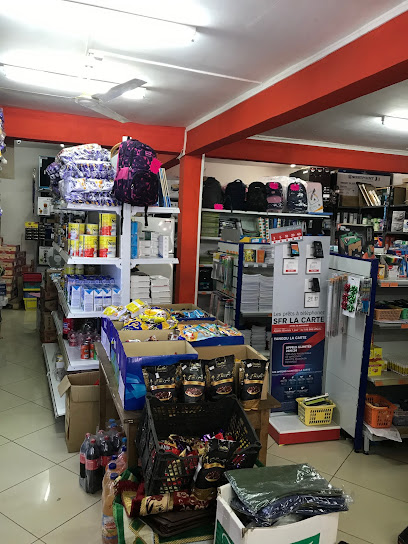
Maison de L'artisanat
Explore Maison de L'artisanat in Sada for authentic Mayotte crafts, showcasing local artisans' unique works and cultural heritage.
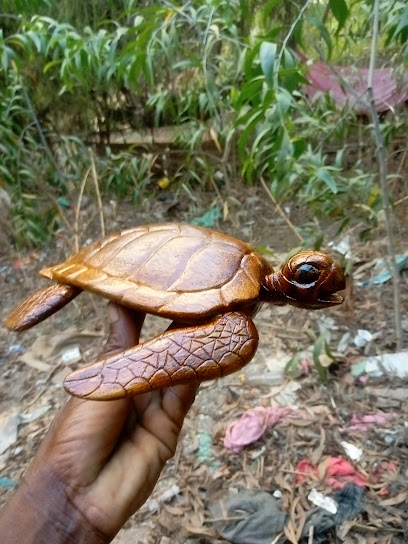
Le Temple D'or
Explore Le Temple D'or in Sada, Mayotte, where exquisite craftsmanship meets cultural artistry in stunning handcrafted jewelry.
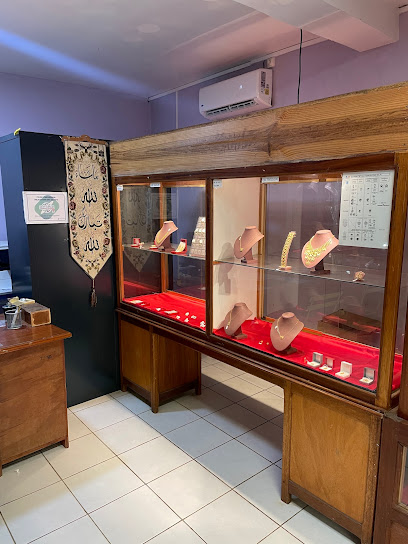
Crêperie Chez Papi-coco sada
Experience the taste of authentic crêpes at Crêperie Chez Papi-coco in Sada, Mayotte - a delightful fusion of French cuisine and tropical charm.
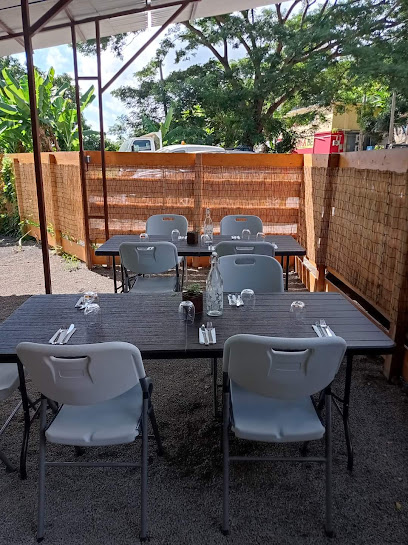
L'Atelier des Titounes
Explore L'Atelier des Titounes for eco-friendly, second-hand treasures including baby clothes, toys, and unique finds in Mayotte.
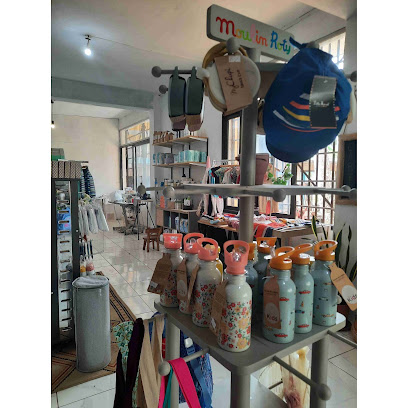
May Halal Market
Explore May Halal Market in Sada, Mayotte – your gateway to authentic local flavors and halal specialties in a vibrant grocery store atmosphere.
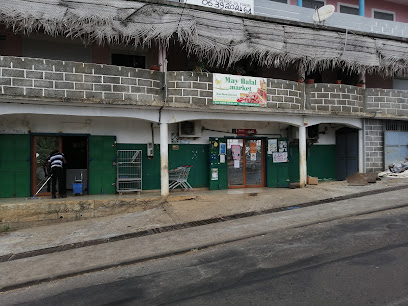
Manga Market
Explore the vibrant Manga Market in Sada, Mayotte – your one-stop shop for local products, unique souvenirs, and an authentic island experience.

CHEZ COCO WAY'
Experience the sweet flavors of Mayotte at Chez Coco Way, a charming patisserie offering exquisite pastries and warm hospitality.
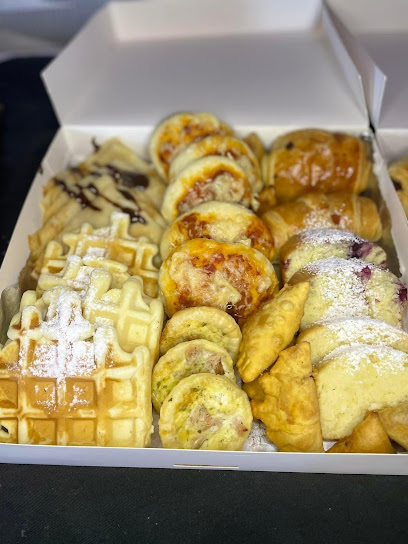
Mon Nid Douillet Mayotte
Explore Mon Nid Douillet in Mayotte for unique, handcrafted furniture that embodies the spirit of the island's rich culture and craftsmanship.
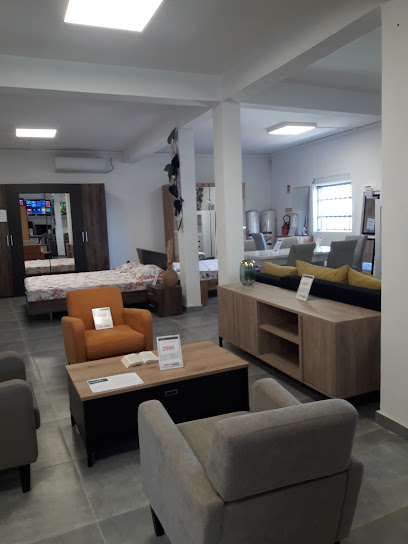
Zombo Négoce
Explore Zombo Négoce in Sada, Mayotte: Your ultimate destination for quality hardware and local charm.

La Grande Braderie
Explore La Grande Braderie in Sada, Mayotte for a diverse selection of car accessories to personalize and enhance your vehicle.
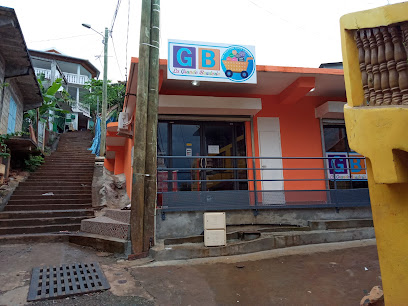
Douka Manzaraka
Discover the culinary delights of Douka Manzaraka, a premier grocery store in Sada, Mayotte, offering fresh local produce and authentic island flavors.
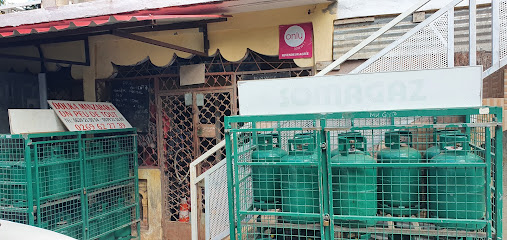
Magazin SuperBois
Explore Magazin SuperBois in Sada, Mayotte for unique home goods that reflect the island's rich culture and craftsmanship.
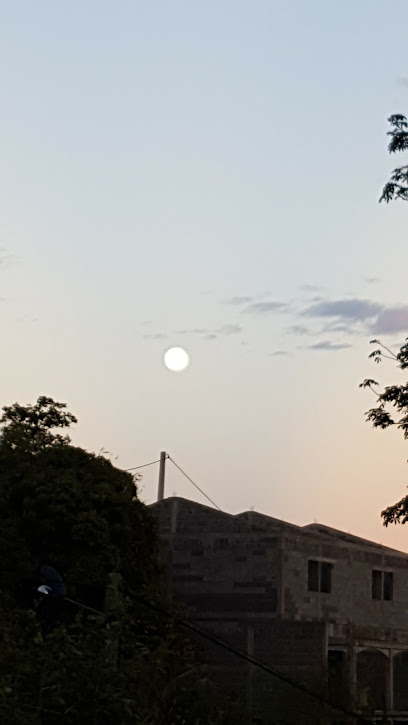
Info'tech
Explore the heart of Mayotte's tech scene at Info'tech, where innovation meets local culture in a vibrant computer store.

Essential bars & hidden hideouts
Barakili
Discover the vibrant atmosphere of Barakili, where local drinks and lively entertainment await in the heart of Mamoudzou, Mayotte.
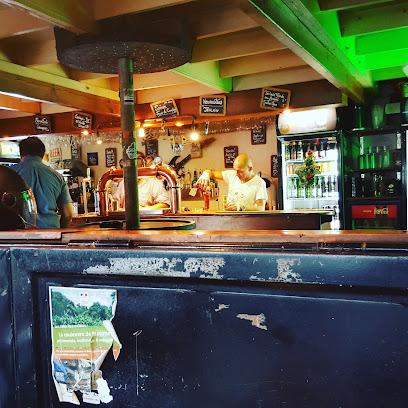
Le 5/5
Experience the vibrant atmosphere of Le 5/5 in Mamoudzou, where delicious pizzas meet live music and refreshing cocktails.
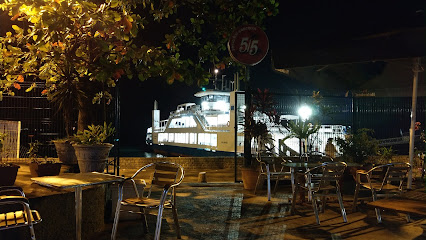
Nasso na Bisso
Experience authentic Mayotte cuisine at Nasso na Bisso, where local flavors meet fresh ingredients in a vibrant atmosphere.
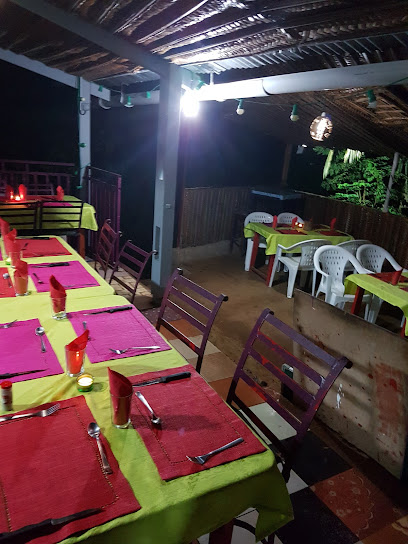
Le Chissioua
Discover the culinary delights of Le Chissioua in Mayotte, a unique blend of restaurant, event venue, and tea house amidst stunning natural landscapes.
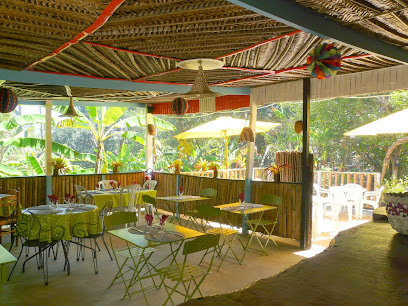
Le Mermoz
Discover Le Mermoz, the vibrant bar in Mamoudzou, Mayotte, known for its exquisite cocktails, delicious tapas, and lively ambiance.
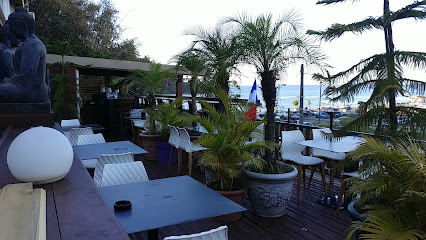
Restaurant-Bellevue
Experience the authentic flavors of Mayotte at Restaurant-Bellevue, where delightful dishes and a warm atmosphere await every visitor.
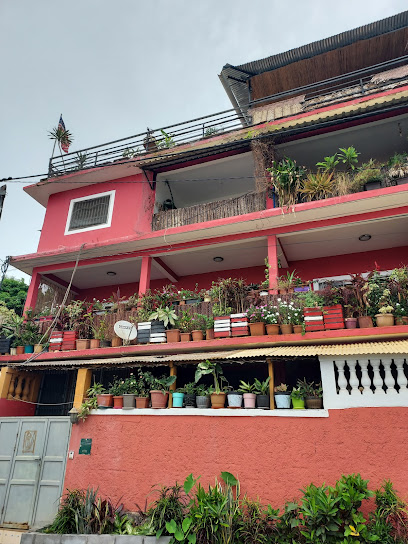
Bomba Snack
Discover the authentic flavors of Mayotte at Bomba Snack, a cozy restaurant in Sada offering traditional dishes made from fresh local ingredients.
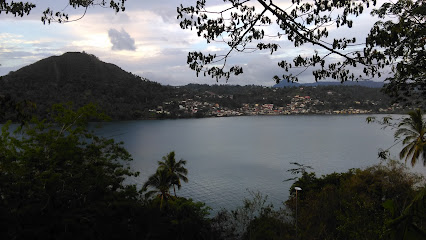
LE WESTERN SNACK
Discover authentic cuisine at Le Western Snack in Sada, Mayotte, where local flavors meet international delights in a cozy atmosphere.

Le Periph’
Experience the rich flavors of Mayotte at Le Periph’, where local cuisine meets international flair in a vibrant dining atmosphere.
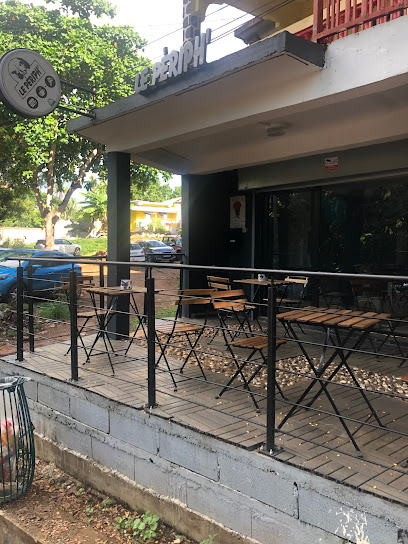
Le Makwé Bar
Discover the vibrant flavors and welcoming atmosphere of Le Makwé Bar in Tsararano, Mayotte, where local cuisine meets island charm.
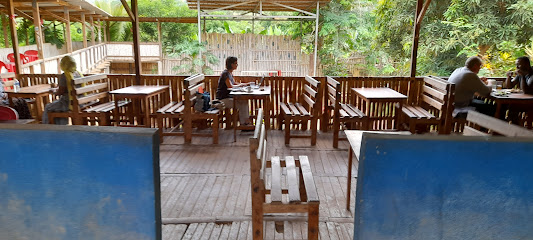
Tchak bé
Discover Tchak bé in Boueni, Mayotte – a vibrant bar offering a unique blend of local drinks, lively atmosphere, and a taste of island nightlife.
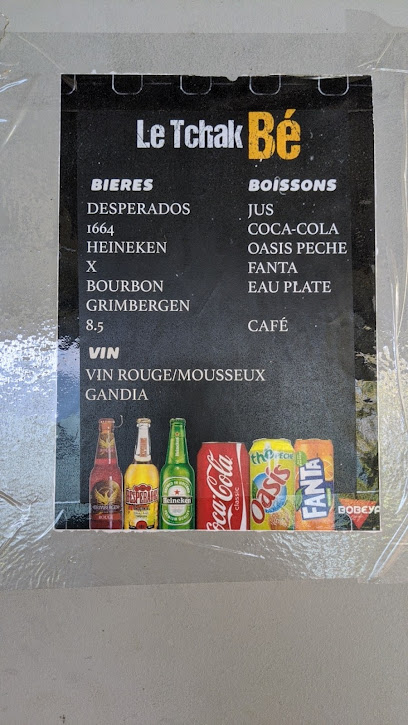
FarWést
Experience the vibrant local culture and electrifying live music at FarWést, a must-visit bar in Bandrele, Mayotte.
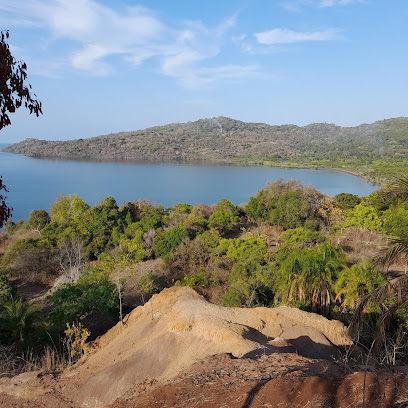
Knet
Discover Knet, a vibrant bar in Mamoudzou, offering an authentic taste of Mayotte's nightlife with a friendly atmosphere and local flavors.

Tdz2
Discover Tdz2, a charming pub in Mamoudzou, Mayotte, offering a cozy atmosphere, local drinks, and a taste of island life.
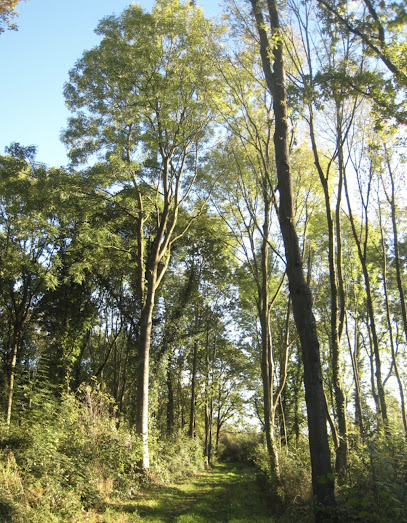
Local Phrases
-
- HelloSalama
[sa-la-ma] - GoodbyeKwaheri
[kwa-he-ri] - YesEwe
[e-we] - NoHapana
[ha-pa-na] - Please/You're welcomeTafadhali
[ta-fa-dha-li] - Thank youAsante
[a-san-te] - Excuse me/SorrySamahani
[sa-ma-ha-ni] - How are you?U hali gani?
[u ha-li ga-ni] - Fine. And you?Nzuri. Na wewe?
[nzu-ri na we-we] - Do you speak English?Unazungumza Kiingereza?
[u-na-zu-ngum-za ki-in-ge-re-za] - I don't understandSielewi
[sie-le-wi]
- HelloSalama
-
- I'd like to see the menu, pleaseNingependa kuona menyu, tafadhali
[nin-ge-pen-da ku-o-na me-nyu, ta-fa-dha-li] - I don't eat meatSili nyama
[si-li nya-ma] - Cheers!Mambo!
[mam-bo] - I would like to pay, pleaseNingependa kulipa, tafadhali
[nin-ge-pen-da ku-li-pa, ta-fa-dha-li]
- I'd like to see the menu, pleaseNingependa kuona menyu, tafadhali
-
- Help!Msaada!
[m-sa-a-da] - Go away!Nenda zako!
[nen-da za-ko] - Call the Police!Piga simu Polisi!
[pi-ga si-mu po-li-si] - Call a doctor!Piga simu daktari!
[pi-ga si-mu dak-ta-ri] - I'm lostNimepotea
[ni-me-po-te-a] - I'm illNinaumwa
[ni-na-um-wa]
- Help!Msaada!
-
- I'd like to buy...Ningependa kununua...
[nin-ge-pen-da ku-nu-nua] - I'm just lookingNatazama tu
[na-ta-za-ma tu] - How much is it?Bei ni kiasi gani?
[bei ni kia-si ga-ni] - That's too expensiveHapo ni ghali sana
[ha-po ni gha-li sa-na] - Can you lower the price?Unaweza kupunguza bei?
[u-na-we-za ku-pun-gu-za bei]
- I'd like to buy...Ningependa kununua...
-
- What time is it?Saa ngapi?
[sa-a nga-pi] - It's one o'clockSaa moja
[sa-a mo-ja] - Half past (10)Nusu kumi
[nu-su ku-mi] - MorningAsubuhi
[a-su-bu-hi] - AfternoonMchana
[m-cha-na] - EveningJioni
[jo-ni] - YesterdayJana
[ja-na] - TodayLeo
[le-o] - TomorrowKesho
[ke-sho] - 1Moja
[mo-ja] - 2Mbili
[m-bi-li] - 3Tatu
[ta-tu] - 4Nne
[n-ne] - 5Tano
[ta-no] - 6Sita
[si-ta] - 7Saba
[sa-ba] - 8Nane
[na-ne] - 9Tisa
[ti-sa] - 10Kumi
[ku-mi]
- What time is it?Saa ngapi?
-
- Where's a/the...?Iko wapi...?
[i-ko wa-pi] - What's the address?Anwani ni ipi?
[an-wa-ni ni i-pi] - Can you show me (on the map)?Unaweza kunionyesha (kwenye ramani)?
[u-na-we-za ku-ni-on-ye-sha (kwe-ne ra-ma-ni)] - When's the next (bus)?Basi lijalo ni saa ngapi?
[ba-si li-ja-lo ni sa-a nga-pi] - A ticket (to ....)Tiketi (kwenda ....)
[ti-ke-ti (kwen-da)]
- Where's a/the...?Iko wapi...?
History of Sada
-
Sada, located on the western coast of Grande-Terre in Mayotte, traces its origins to early Swahili settlements. The first inhabitants were likely Swahili traders who established themselves in the region around the 9th century. These early settlers brought with them a rich cultural tapestry that included language, trade practices, and architectural styles that are still evident in Sada today.
-
By the 12th century, Arab traders began to frequent Mayotte, including Sada, due to its strategic location along the Indian Ocean trade routes. These traders introduced Islam to the island, and Sada became one of the key locations where Islamic culture and religion began to take root. Mosques were built, and the local architecture began to reflect Islamic influences, which can still be seen in the town's layout and structures.
-
In the mid-19th century, Mayotte, including Sada, came under French colonial rule. The French influence brought significant changes to the social and economic fabric of the region. New administrative structures were established, and the town of Sada saw the introduction of French education systems, legal frameworks, and infrastructural developments. This period marked a dramatic shift in Sada's cultural landscape as it began to blend local traditions with European influences.
-
Following Mayotte's decision to remain a French overseas territory in the 1970s, Sada experienced substantial development. The town saw improvements in infrastructure, healthcare, and education. These advancements helped boost the local economy and improve the quality of life for its residents. During this period, Sada also began to emerge as a center for cultural preservation, with efforts to maintain and celebrate its rich historical heritage.
-
Today, Sada stands as a vibrant town that reflects the diverse history of Mayotte. It is a place where traditional M’godro music and dance can be enjoyed alongside the bustling markets that sell both local crafts and modern goods. The blend of Swahili, Arab, and French influences is evident in everyday life, from the languages spoken to the culinary delights available. Modern Sada is a testament to the town’s resilience and ability to adapt while preserving its unique cultural identity.
Sada Essentials
-
Sada is located on the island of Mayotte, an overseas department of France in the Indian Ocean. The nearest airport is Dzaoudzi–Pamandzi International Airport. From the airport, you can take a taxi or rent a car to reach Sada, which is approximately a 30-minute drive away. Additionally, ferries connect the island to mainland Africa, although air travel is the most convenient option.
-
In Sada, you can find taxis, which are a convenient way to get around. Car rentals are available for those who prefer to explore the island at their own pace. Public transports like buses and shared taxis (known locally as 'bush taxis') also operate within Sada and to other parts of Mayotte. Walking is feasible for short distances within the town.
-
The official currency in Mayotte is the Euro (EUR). Credit cards are accepted in most hotels, restaurants, and larger shops, but it's advisable to carry some cash for smaller establishments and markets. ATMs are available in Sada, but it’s a good idea to withdraw enough cash upon arrival to avoid any inconvenience.
-
Sada is generally a safe destination for tourists. However, like any travel destination, it is recommended to take basic precautions. Avoid walking alone at night in unfamiliar areas and keep an eye on your personal belongings in crowded places. There are no specific high-crime areas targeting tourists, but staying vigilant is always wise.
-
In case of emergency, dial 112 for immediate assistance. There is a local police station in Sada and medical facilities are available. It is advisable to have travel insurance that covers medical emergencies. Pharmacies are available in the town for minor health issues and over-the-counter medications.
-
Fashion: Do dress modestly, especially when visiting religious sites. Avoid wearing revealing clothing. Religion: Do respect local customs and traditions. Public Transport: Do be respectful and give up your seat to elderly passengers. Don't eat or drink on public transport. Greetings: Do greet people with a smile and a polite 'Bonjour'. A handshake is common. Eating & Drinking: Do try local dishes and accept food offerings graciously. Don't refuse hospitality, as it is considered impolite.
-
To experience Sada like a local, visit the local markets where fresh produce and traditional Mayotte goods can be found. Engage with the locals, as they are friendly and often willing to share stories about their culture and history. Don't miss the opportunity to visit the beaches and natural reserves around Sada for a unique experience of Mayotte's natural beauty.
Nearby Cities to Sada
-
Things To Do in Chiconi
-
Things To Do in Dembeni
-
Things To Do in Chirongui
-
Things To Do in Bandrele
-
Things To Do in Acoua
-
Things To Do in Mamoudzou
-
Things To Do in Koungou
-
Things To Do in Domoni
-
Things To Do in Ouani
-
Things To Do in Iconi
-
Things To Do in Moroni
-
Things To Do in Mahajanga
-
Things To Do in Majunga
-
Things To Do in Nosy Be
-
Things To Do in Antsiranana








